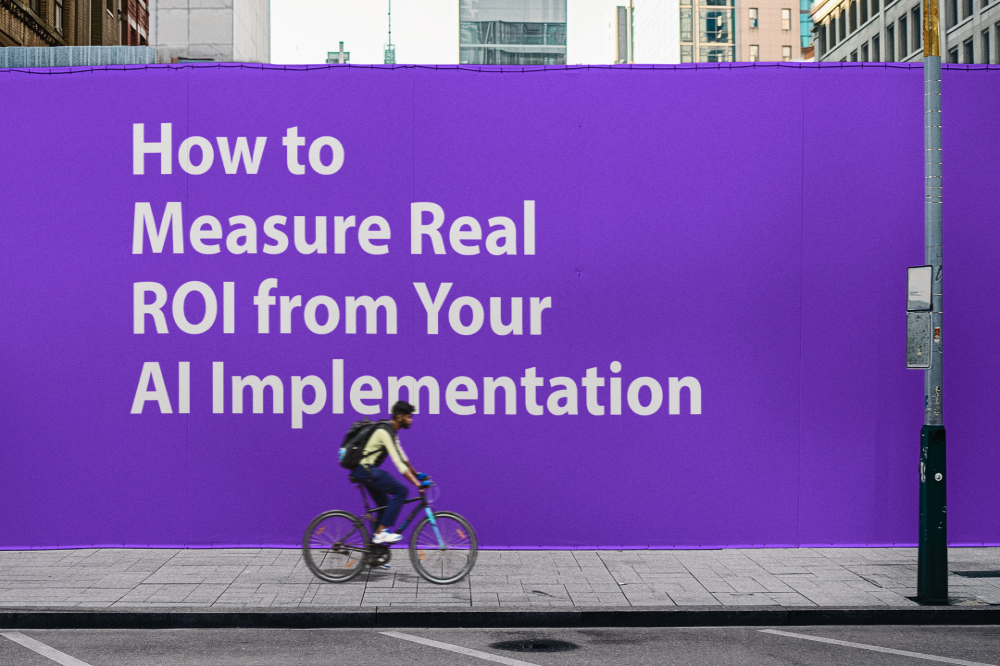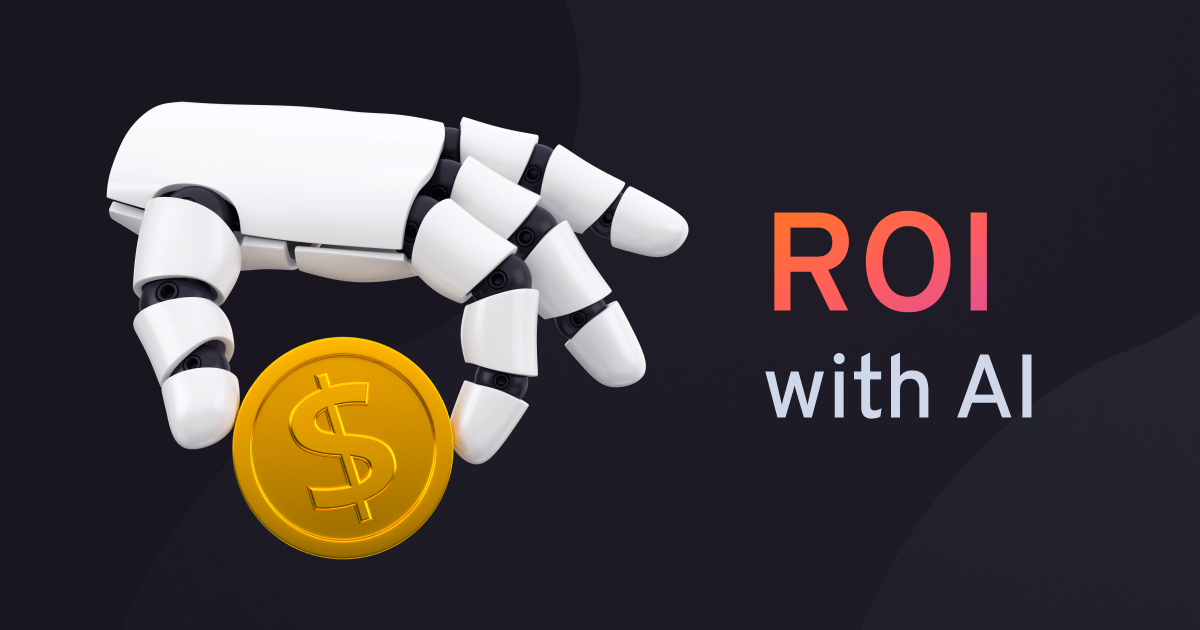
Artificial Intelligence (AI) is transforming businesses across industries, streamlining operations, boosting productivity, and increasing revenues. However, while companies are quick to implement AI, many struggle with accurately measuring its return on investment (ROI). Knowing exactly how much value your AI initiatives deliver is critical—not just for reporting but also for strategic planning, resource allocation, and long-term growth.
In this practical guide, you’ll discover exactly how to measure and maximize your ROI from AI implementations clearly and confidently.
Measuring AI ROI isn’t just a box-ticking exercise—it’s a strategic necessity. With clear ROI metrics, you can:
Justify AI investments to stakeholders.
Optimize your budget and resources more efficiently.
Confidently scale successful AI initiatives.
Identify ineffective strategies quickly, saving you from costly mistakes.
Accurately measuring ROI also empowers your organization to build stronger strategies based on clear, actionable insights rather than assumptions.

Evaluating AI success requires looking at several critical business metrics:
Cost Savings: Reduced operational or staffing expenses directly linked to AI automation.
Revenue Growth: New revenue streams or increases attributed to AI-driven products or insights.
Cost Avoidance: Potential losses or expenses prevented by AI, such as reducing fraud or preventing downtime.
Time Saved: Measure productivity gains from automating manual or repetitive tasks.
Productivity Improvements: Assess output improvements—more leads, faster responses, higher throughput—due to AI integrations.
Customer Retention Rate: Track retention improvement through personalized, AI-driven customer experiences.
Customer Satisfaction Scores (CSAT/NPS): Higher satisfaction indicates improved customer interactions, automated support, or tailored offerings through AI.
Calculating your AI ROI can be straightforward if done methodically. Use this proven formula:
ROI (%) = [(Total Gains from AI – Total AI Costs) ÷ Total AI Costs] × 100
Example scenario:
AI solution costs: $10,000
Measurable savings (productivity, reduced costs): $50,000
Applying the formula:
ROI = [($50,000 – $10,000) ÷ $10,000] × 100 = 400%
In this scenario, the AI implementation delivered a powerful 400% ROI—indicating a highly successful investment.

For accurate ROI tracking, utilize these specialized analytics and reporting tools:
Google Analytics: Track web interactions and conversions impacted by AI-driven marketing tools.
Tableau & Power BI: Dashboards and visual analytics to consolidate AI-driven performance metrics.
HubSpot & Salesforce: Directly measure sales and CRM activities enhanced through AI integrations.
Custom-built Dashboards: Tailored analytics tools (built by experts like ReNewator) to track precise AI-driven KPIs unique to your business.
Here are quick insights from companies who’ve effectively measured their AI ROI:
Retail Brand X: Using AI-driven chatbots, this brand increased customer support efficiency by 35%, reducing annual costs by $150,000 and achieving a 250% ROI.
Financial Firm Y: AI-powered predictive analytics improved customer retention by 15%, translating to $200K additional annual revenue—an impressive 300% ROI.
These cases illustrate clear, quantifiable returns from thoughtful AI implementation.
Avoiding these pitfalls ensures your ROI calculations remain accurate:
Setting Unrealistic Expectations: Expecting instant high returns can lead to undervaluing steady, long-term improvements.
Tracking the Wrong Metrics: Prioritize metrics that align directly with your AI’s objectives and business goals.
Ignoring Indirect Benefits: Overlooking productivity or satisfaction improvements can underestimate your true ROI.
Short-term Focus: Only measuring short-term gains ignores the compound value of sustained AI enhancements.

Set Clear Goals: Clearly define success metrics before AI implementation.
Track Consistently: Establish regular reporting cycles to capture accurate, ongoing insights.
Be Transparent: Regularly share clear, straightforward reports with stakeholders, maintaining transparency and alignment.
Accurately measuring your AI implementation ROI isn’t complicated—it simply requires clarity, consistency, and strategic alignment. By focusing on meaningful metrics and avoiding common pitfalls, you’ll unlock AI’s full potential, creating measurable, sustainable value for your organization.
Not sure how to start? ReNewator specializes in helping businesses track, measure, and maximize their AI investments.
Ready to unlock real ROI from your AI? Contact us today and let’s start measuring your success clearly.
McKinsey’s Report on AI and ROI
Gartner Insights on AI Implementation